The focal point of this coffee shop and bookstore in Hamilton, Ontario, Canada is a counter that is covered with Max Lamb’s colourful man-made marble.
In the little city of Hamilton, which is located about an hour’s drive to the southwest of Toronto, you’ll find a coffee shop, a bar, a bookstore, and a restaurant that caters to vegetarians and vegans.
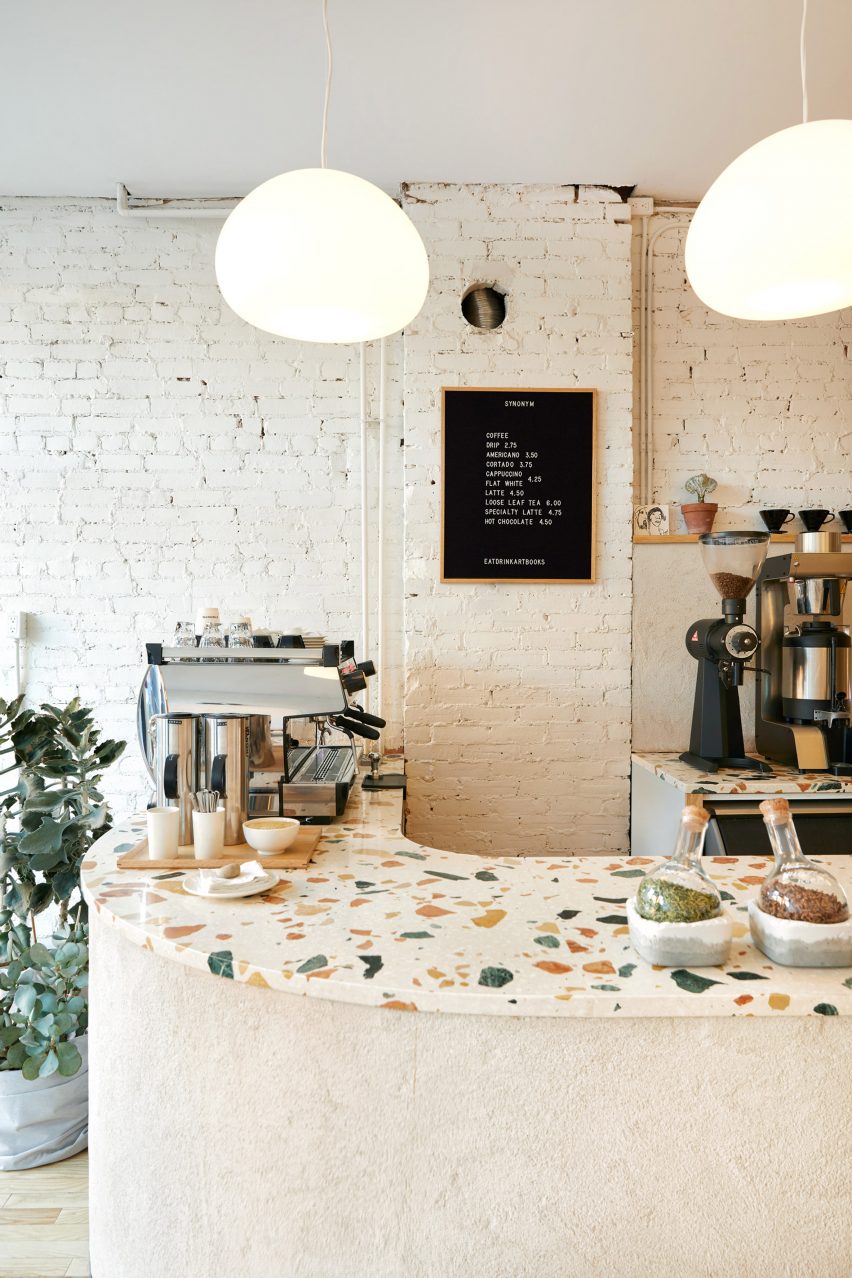
The current owners, Sid Singh and Ayisha Izmeth, collaborated with the Montreal-based architecture group Atelier Barda to build their home, which spans 73 square metres and was formerly an art gallery. The home was built in 1895.
“The project’s purpose was to create a place that was intrinsically sociable in order to emphasise the utility of a neighbourhood café,” noted Atelier Barda and Synonym in a mission statement. “The mission description also indicated that we wanted to emphasise the usefulness of a neighbourhood cafe.” A room that is friendly and promotes dialogue and community has been created thanks in part to the use of softer lines, cosier corners, and an emphasis on lighting.
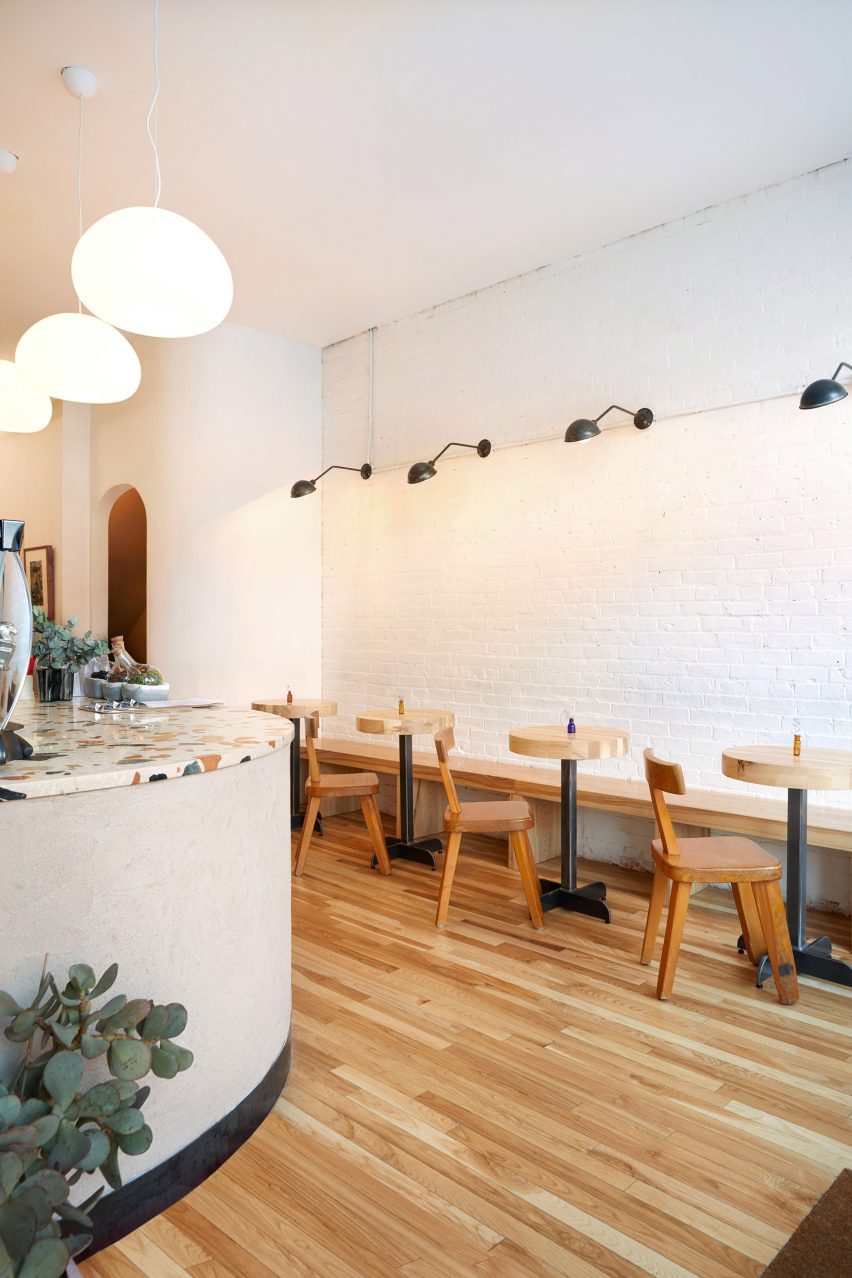
In order to expose the brickwork that was already there, the walls had the black plaster that covered them stripped away during the renovation. This was subsequently painted white in order to enliven the interiors, which also include wooden floors and an abundant supply of natural light that comes in via two large storefront windows.
The group noted that one of the goals of the project was to “uncover the bones of the space and expose the wounds it accumulated over the course of 130 years of standing on James Street North.”
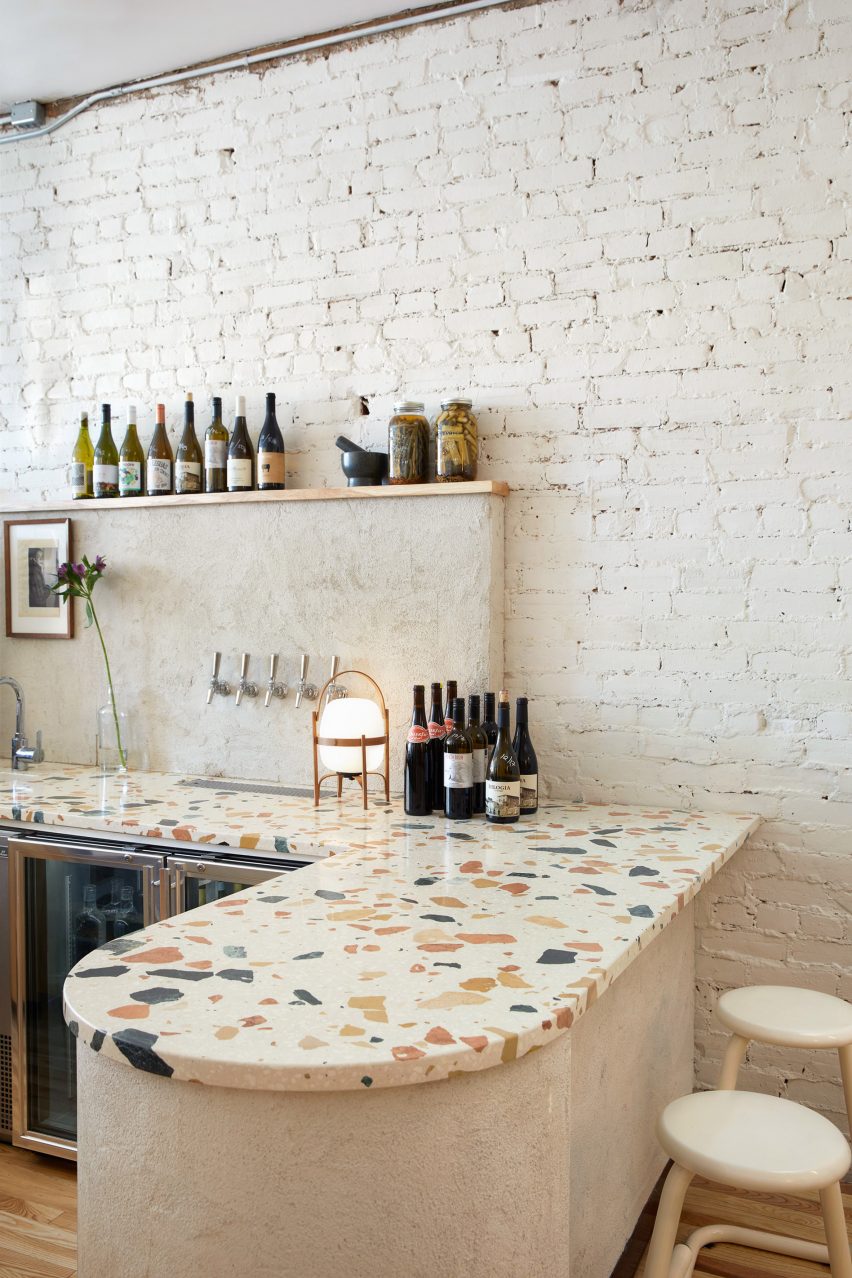
These subdued tones are complemented by the outside trim, which is painted with an ash-colored Belgian paint that the operator of the café, Singh, picked from the Mjolk store. This boutique, which can be found in Toronto, is dedicated to showcasing the work of designers and craftspeople from Japan and Scandinavia.
Singh also worked closely with the shop to provide all of the lighting, equipment, and furniture for Synonym.
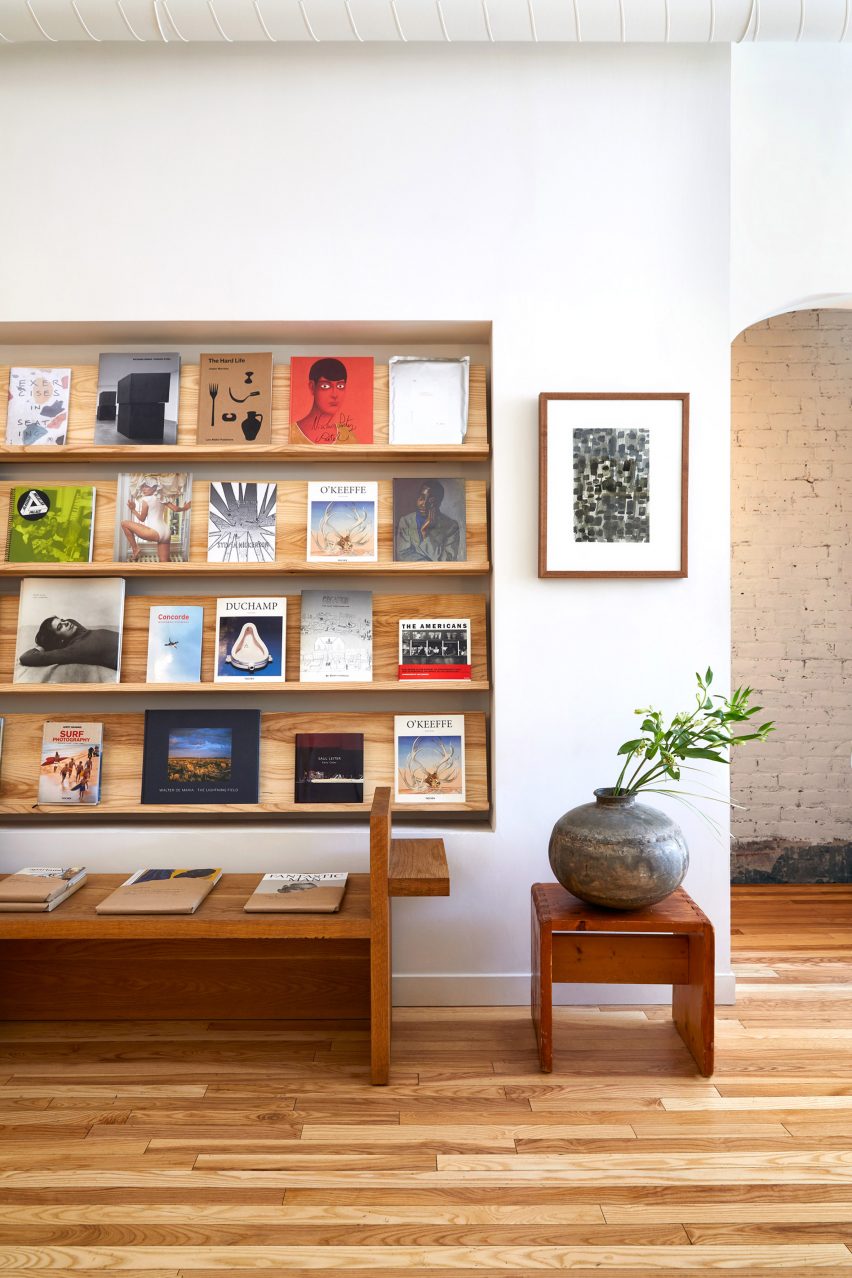
“White-washed brick walls, muted palette, natural materials like mineral paint, plaster, wood, and stone make up the space to draw attention and pay homage to the building’s history, while creating a refreshing respite from the more industrial design of the city,” the group added. “The space was designed to draw attention and pay homage to the building’s history, while also creating a welcoming escape from the more industrial design of the city.”
The restaurant is decked out with a variety of “unique” furniture, including a bar that is formed by two spherical volumes arranged in an L-shape. The founder of Synonym, Singh, noted that Atelier Barda was helpful with the layout and the concept of incorporating curves throughout the room. Ssense, an architectural design by Atelier Barda
Atelier Barda combines foliage with bespoke furnishings at trend model places of work
The bar is finished with a bright material that resembles terrazzo and was designed by the British architect Max Lamb. The material is known as Marmoreal 157 and was introduced in the year 2014. It is composed of engineered marble that is combined with three distinct pieces of Italian marble that range in colour from deep purple to ochre yellow to bright green.
In addition, there is a broad variety of sitting nooks inside the café, including built-in chairs on the front windows as well as a wooden banquette to make the most of the limited space. Native American craftsman Craig Lea is responsible for the creation of all of the built-in seats and tables.
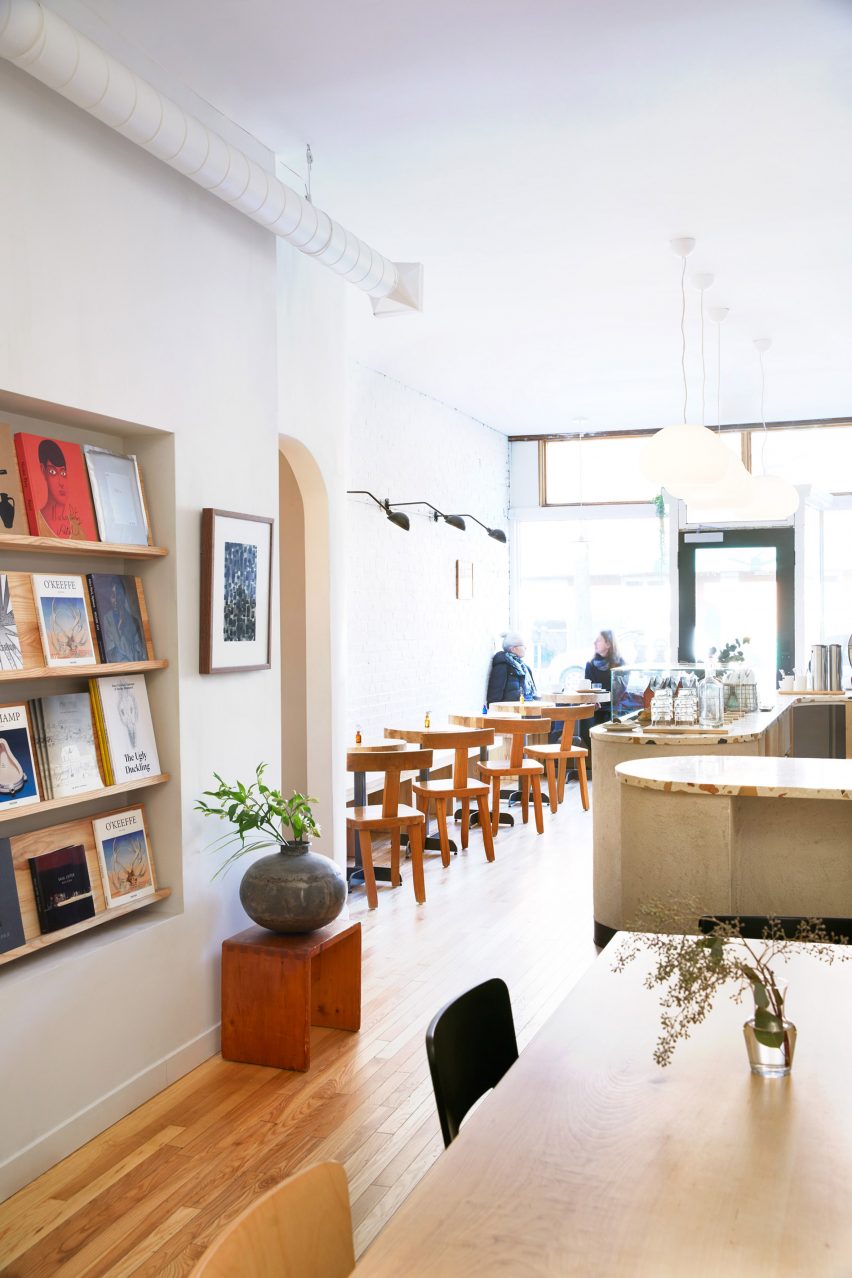
According to the plan, “each section of the area pulls in gentle natural light and gracefully flows from one to the next.”
As part of the ornamentation, there is a series of chunky wooden T-chairs designed by Olavi Hanninen of Finland and a set of black lights that were specially fabricated for the space by Eclectic Revival, a shop in Toronto.
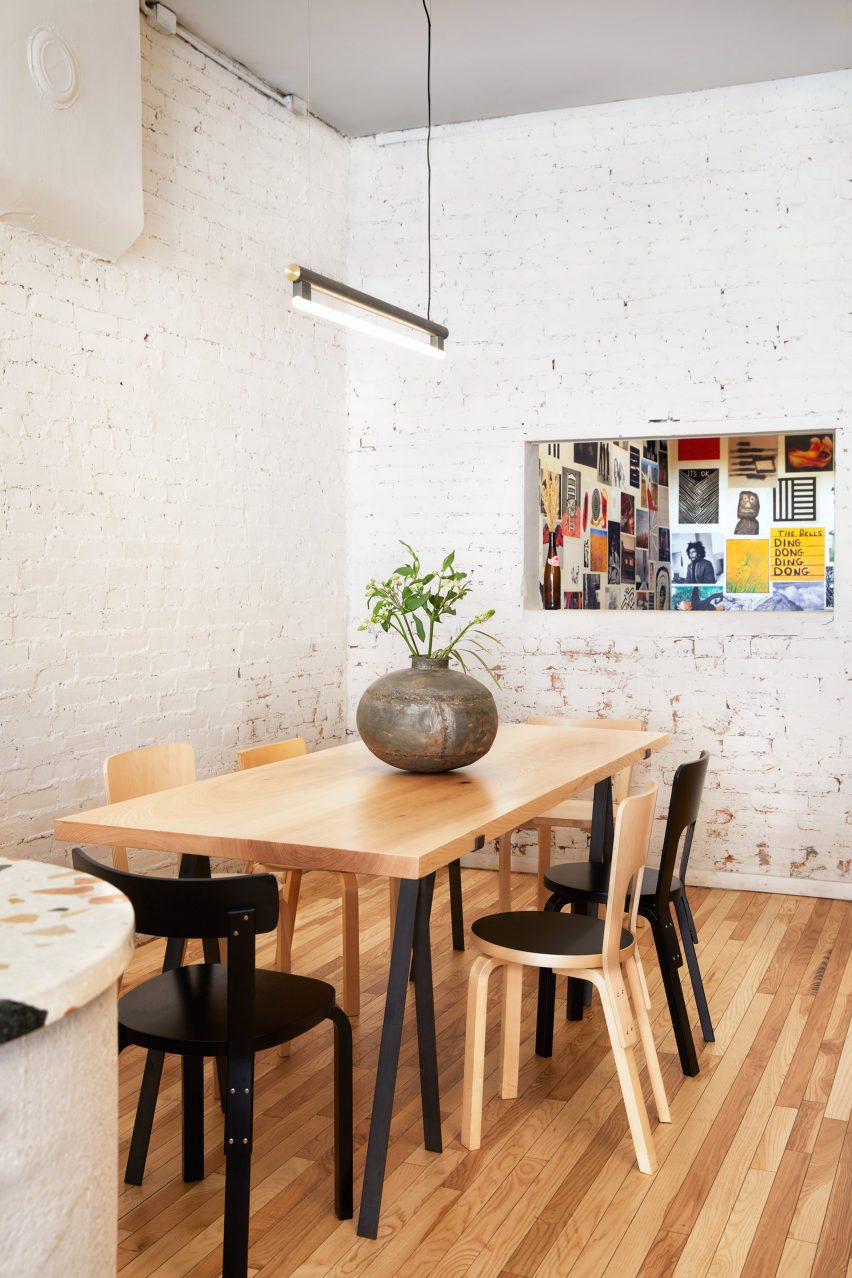
A communal dining area is located farther inside the café and is furnished with a Trestle desk designed by the Danish firm Frama and birchwood chairs designed by the Finnish modernist Alvar Alto and named 66 and 69, respectively. Another corner can be found towards the back of the room, and it has sketches and paintings that almost completely cover the walls. This helps to make the space seem cosier and more lively.
Additionally included at Synonym is an extensive selection of lighting options. Above the central dining table, there is a Frama Eiffel light in the shape of a tube. In addition to the four bulbous Fluid pendant lights designed by the Swedish company Claesson Koivisto Rune, the bar has a Cestita desk lamp created by the Spanish designer Miguel Milá in 1962.
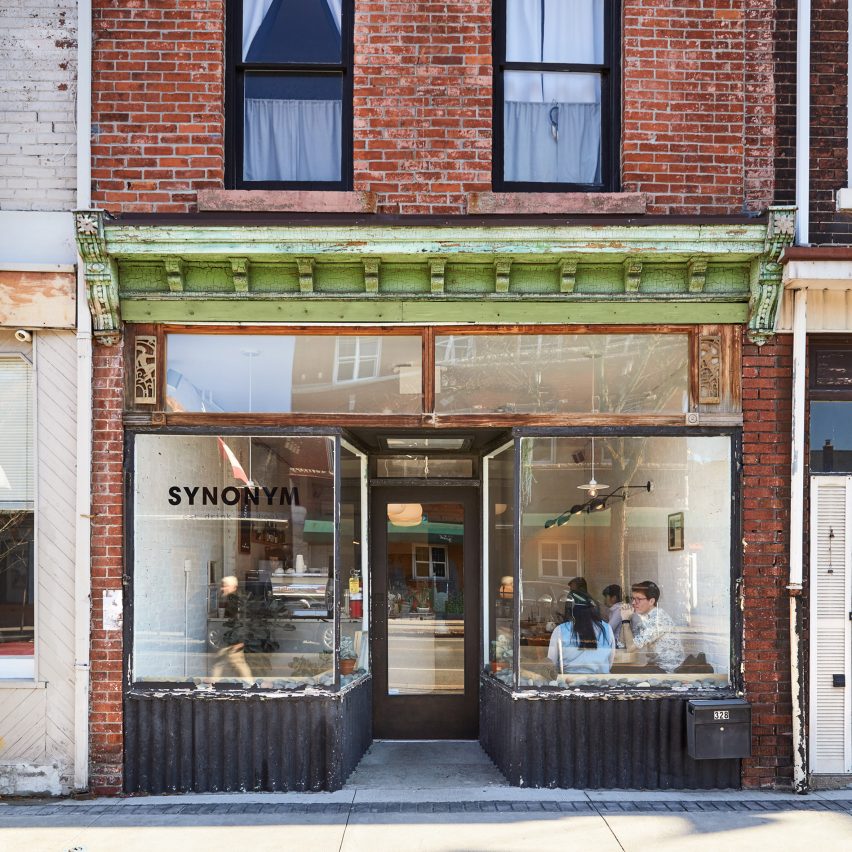
The project is finished off with a variety of homely touches, such as a built-in magazine rack with wooden cabinets, potted plants and vases, and framed artwork on the walls. Jeremy Joo, a carpenter based in Toronto, built several shelves specifically for the purpose of keeping wine bottles.
Cécile Combelle and Antonio Di Bacco are responsible for establishing Atelier Barda. It has finished a number of interiors in Montreal, including an office for a fashion company with steely interiors and flora as well as a refurbished house with cosy pink and white interiors. Both of these projects were carried out by the company.
Photography is by Brandon Titaro.